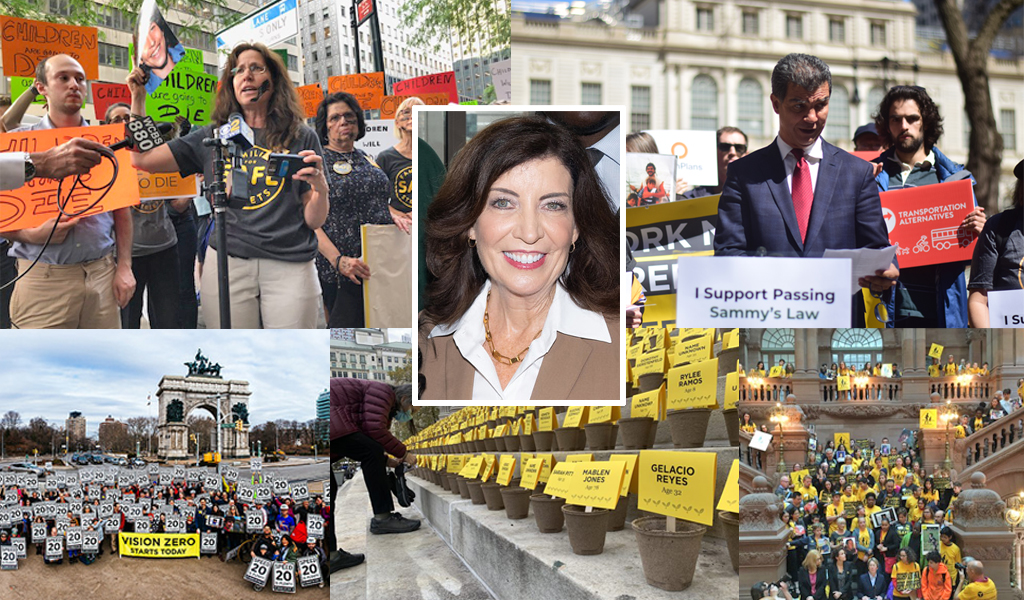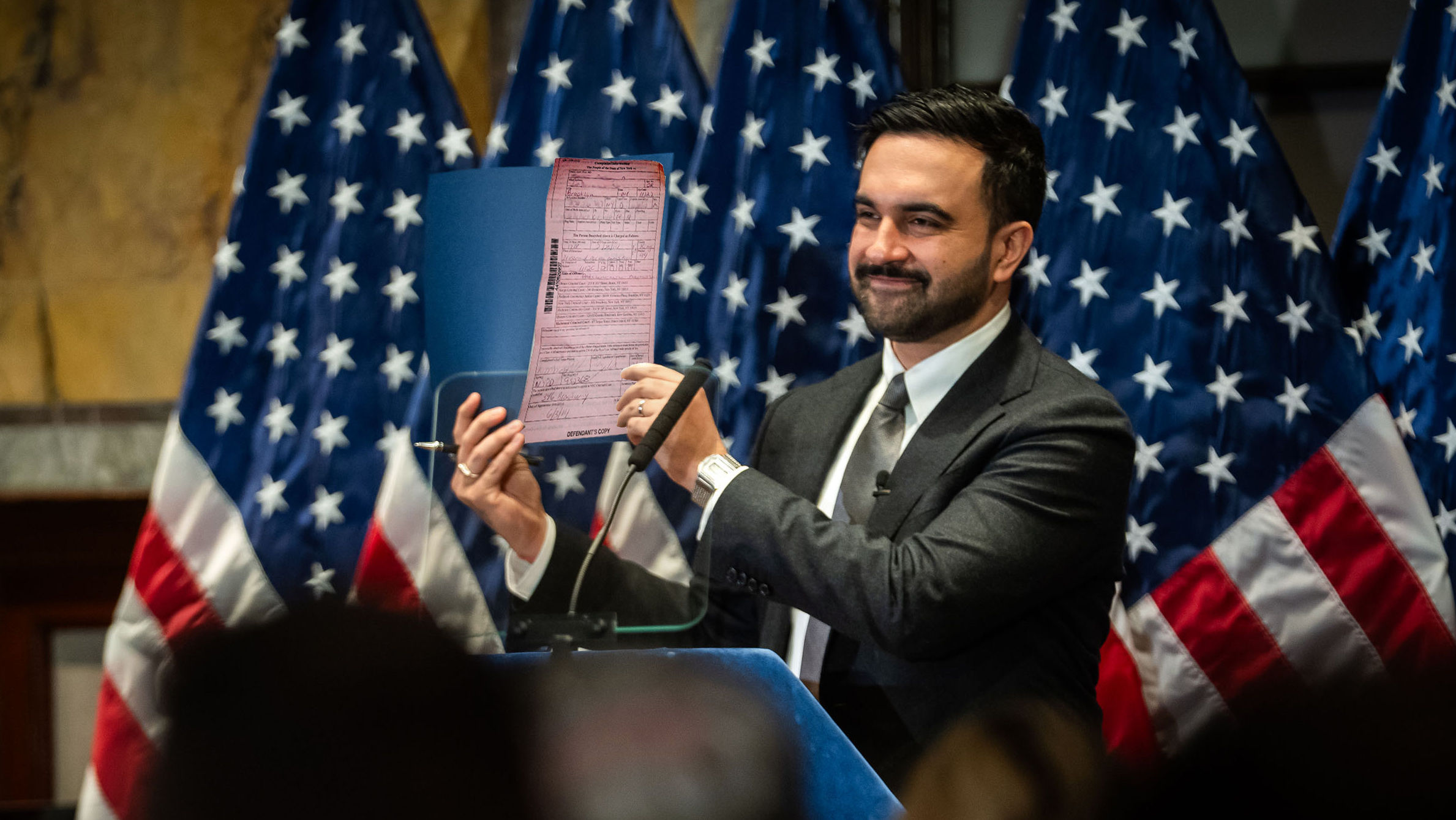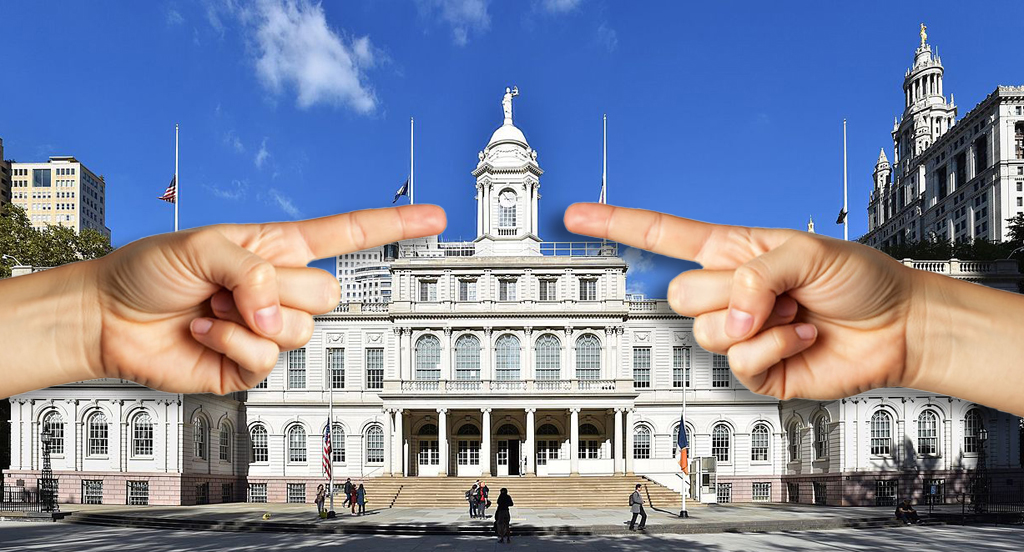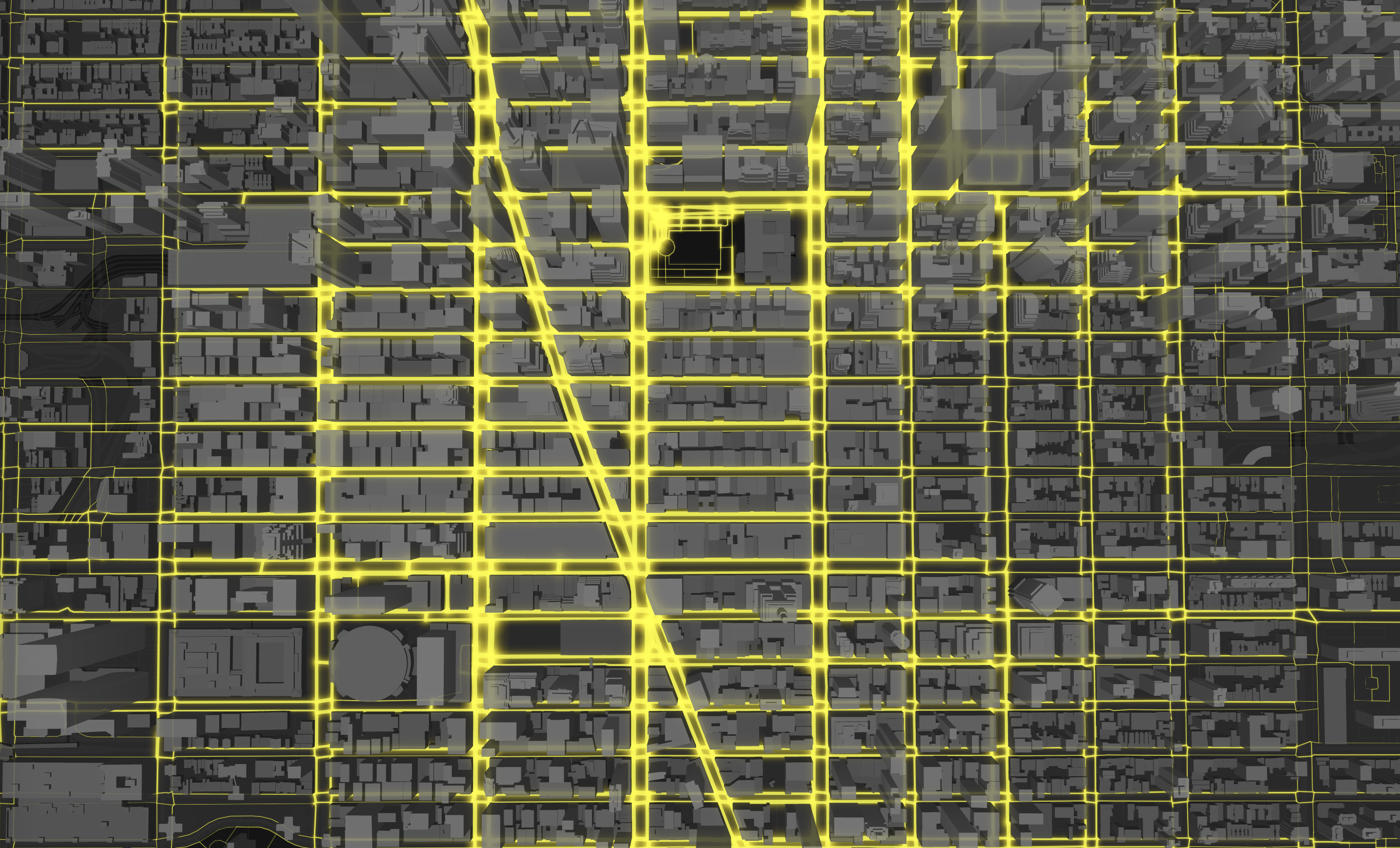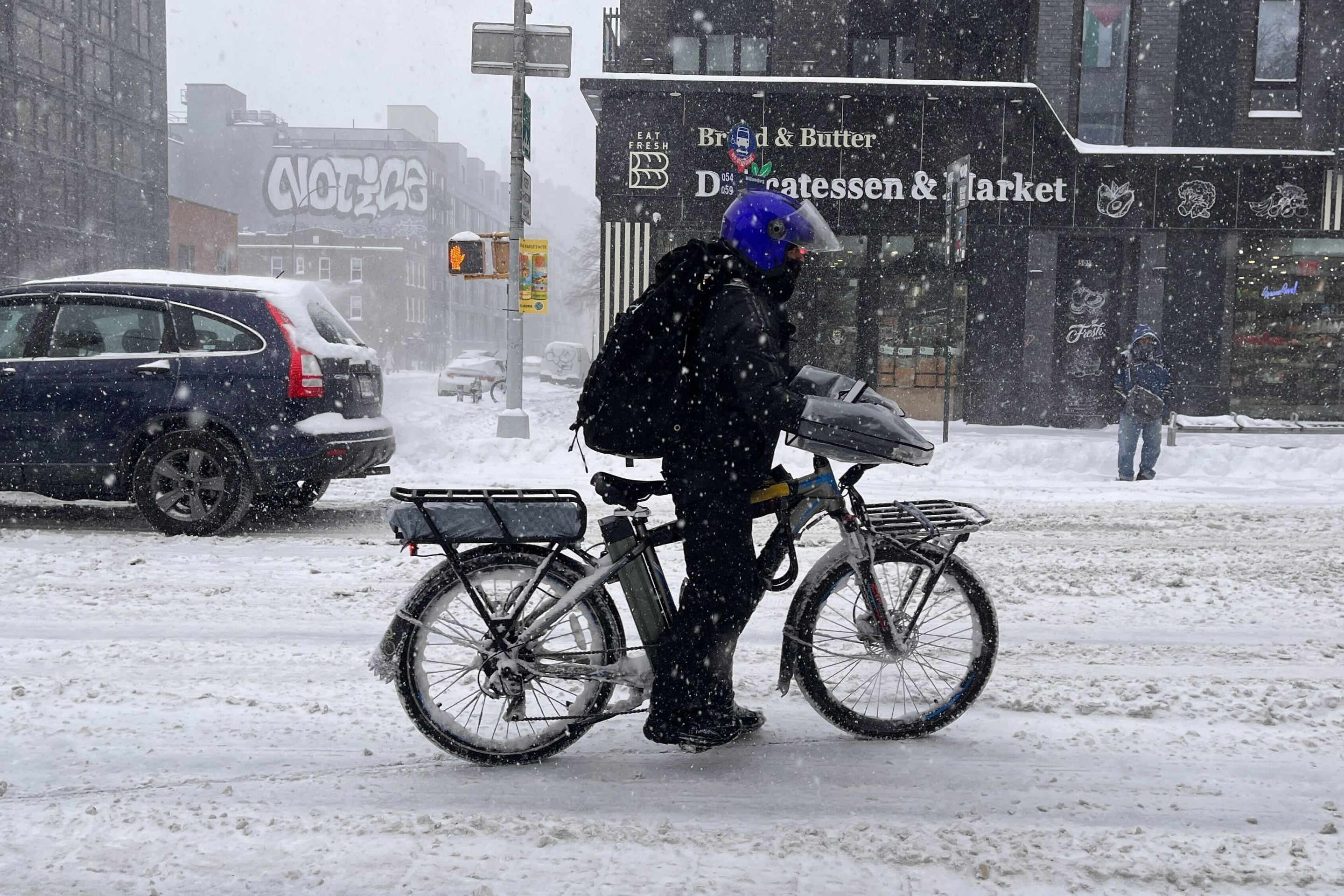New York City won the ability to set its own speed limits on some roads — a major safety initiative of advocates who have trekked (and waged a hunger strike) to Albany every year — because Gov. Hochul refused to blink.
The governor has put the so-called "Sammy's Law" in her budget for two consecutive years only to watch Assembly Speaker Carl Heastie set it aside, arguing that he does not "do policy" in the budget. But this year, the governor pushed back because giving the city the ability to drop the speed limit to 20 on most roads was too important to punt again.
The legislature, her team told state lawmakers, could get on the right side of history, or continue to hear from road violence victims' families over and over and over.
“Those parents are not going to drop it, and that means that ... every year that the Assembly ducks it, it comes back and it's even more uncomfortable to duck it,” a source in Gov. Hochul's administration told Streetsblog after the deal was done. “When there are things that are just absolute hard nos that we're not going to get, we don't usually do them twice. … But the governor was not willing to do that with 'Sammy’s Law.'”
The measure finally passed in the $273-billion state budget on Saturday. But by passing it in the state's annual spending plan rather than as a separate bill, lawmakers who were on the fence (including some who co-sponsored the bill!) never have to record how they would have voted.
And that's crucial because the final version of Sammy's Law forbids the city from reducing the speed limit on roads outside of Manhattan with three or more travel lanes in one direction, a demand of lawmakers in more car-centric parts of the city.
They should be careful what they wished for; the caveat will withhold the proven safety benefits of lower speeds from major thoroughfares that are often among the city's deadliest, but Hochul’s team agreed to the watered-down version of the law to get the bill over the finish line.
“We stand by the bill that we introduced, but that doesn't mean that we're not willing to negotiate something that does a lot of good for most people,” the source said.
(There's still a little back-biting over how the provision got into the bill in the first place; the source in the governor's office said the exemption was added to the Senate version of the bill, but its sponsor, Sen. Brad Hoylman-Sigal, said he did it only "to respond to concerns" in the Assembly. The bill's Assembly sponsor, Linda Rosenthal, did not respond to a request for comment.)
The city will also have to give local community boards written notice for changing any speed limits in a given area, and a chance to comment on it, but any feedback by the civic panels will be purely advisory.
During talks leading up to the budget, Assembly leadership apparently declined to go into details about its opposition to the bill, the governor's office source said, with legislators claiming they don't include policy in the budget, similar to a line of argument a rep for Heastie previously told Streetsblog.
Heastie's office did not respond for comment for this story.
Last year, Heastie simply refused to bring the bill up for a vote in the session, even after an unprecedented 100-hour hunger strike by Fabiola Mendieta-Cuapio, whose 5-year-old son Bryan was killed by a driver in 2006, and Amy Cohen, the cofounder of Families for Safe Streets and the mother of Sammy Eckstein Cohen, for whom the bill is named.
"We could not have done this without fighting together to make change to prevent others of suffering the heartache that my family knows all too well," Cohen said in an emotional video as the budget deal took shape Thursday:
SAMMY'S LAW WILL FINALLY PASS!
— Families For Safe Streets (@NYC_SafeStreets) April 18, 2024
This moment would not have been possible without your tireless advocacy and unending commitment to street safety.
A message from Amy Cohen, mother of Sammy Cohen Eckstein: pic.twitter.com/oVsR5UNH6F
Gov. Hochul also issued a statement heralding the ability of New York to "do what they think [is] right for their constituents."
“I cannot wait to hug Sammy’s family and we’ll do an official signing, with a lot of tears I’m sure, but knowing that their advocacy resulted in a real win in his name,” she said last week.
The ability to lower the speed limit in New York will take effect in 60 days. The City Council will need to legislate the change and get Mayor Adams's signature.
City lawmakers have largely backed lowering speed limits, however, the Council’s Transportation Chair Selvena Brooks-Powers last year conditioned her support for the change on the city redesigning streets, especially in low-income neighborhoods of color.
Brooks-Powers's car has been caught on camera nearly two dozen times speeding in school zones, and some of the speeding tickets were on roads with three or more lanes like Cross Bay Boulevard in Howard Beach and Conduit Boulevard in East New York. The car's driving record is evidence that two things can be true: speed limits need to be lower and wide roadways need to be redesigned to discourage speeding.
Neither the Council's press office nor Brooks-Powers responded to a request for comment about their new power to regulate speed limits.
